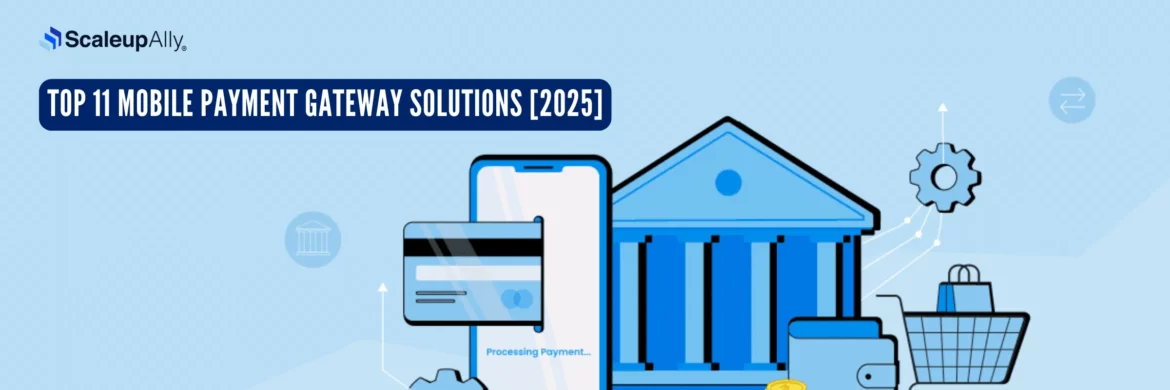
Stripe Connect Account Types: How to Choose the Right One?
Suprabhat Sen | June 3, 2024 , 9 min read
Table Of Content
In today’s fast-paced world of online marketplaces and software platforms, managing payments across countries, currencies, and regulations can be a major challenge. But with Stripe Connect, businesses now have a streamlined way to simplify this process. Stripe Connect offers a powerful payout engine and global payment routing, making it easier than ever to build and scale your platform.
This guide will break down the different Stripe Connect account types to help you choose the best fit for your business.
What is Stripe Connect?
Before exploring the account types, let’s first understand what Stripe Connect is and how it can transform your payment operations.
Stripe Connect is a comprehensive platform by Stripe designed for online marketplaces and software platforms. It offers:
- Global payment routing: Manage payments between buyers, sellers, and customers globally.
- Flexible fund splitting: Easily divide and allocate funds among different parties.
- Seamless cross-border transactions: Route payments internationally without complex banking setups.
- Programmable APIs: Automate and customize payment workflows according to your business needs.
With Stripe Connect, you can:
- Payout in local currencies: No extra engineering efforts or banking relationships required.
- Use the Stripe Dashboard: Send funds, issue refunds, handle chargebacks, and track all transactions in one place.
- Simplify compliance: Reduce manual processes and streamline regulatory requirements.
- Scale effortlessly: As your business grows, Stripe Connect adapts to your needs, letting you focus on driving revenue.
By simplifying payment complexities, Stripe Connect enables businesses to focus on what matters most—growth and customer experience.
The Three Stripe Connect Account Types
Now that we have a solid grasp of what Stripe Connect brings to the table, let’s explore the three different account types it offers: Standard, Custom, and Express. Each account type is designed to cater to specific use cases and offers varying levels of integration, features, and costs.
1. Stripe Standard Account
The Standard account is the most straightforward option. It requires minimal integration effort, allowing you to launch your platform quickly without incurring upfront costs or investing heavily in payment facilitation development.
With a Standard account, sellers are prompted to create their own Stripe accounts and connect them to your marketplace. They have complete control over their accounts, directly interacting with Stripe and accessing the Stripe Dashboard. Sellers can process charges independently and disconnect their accounts from your platform if needed. It’s important to note that in this setup, buyers transact directly with the seller’s account, making sellers responsible for Stripe fees, refunds, and chargebacks.
The Standard account is ideal when:
- You want to kickstart your business without delay.
- Your users are experienced online sellers who may already have Stripe accounts. You’re comfortable with limited control over the user experience.
- You don’t want to manage liability or seller Stripe accounts.
- You prefer to use direct charges, where buyers transact with sellers, often unaware of your platform’s existence. You want Stripe to handle direct communication with your users for account-related issues.
- Prominent examples of businesses utilizing the Standard account include e-commerce SaaS platforms like Shopify and Invoice2go.
2. Stripe Custom Account
If you’re looking for a white-label solution that offers complete control over the payment process and user experience, the Custom account is the way to go. With a Custom account, you have the freedom to fully customize the payment process, dashboard, and reporting interfaces.
When using the Custom account, the Stripe Connect integration is almost invisible to the account holder. They won’t have access to the Stripe Dashboard, and Stripe won’t directly contact them. Instead, your platform will handle all interactions with users, including onboarding, information collection, support, and managing Stripe fees, refunds, and chargebacks on behalf of the sellers.
While the Custom account offers unparalleled flexibility, it requires significant development resources and integration effort. You’ll need to build the infrastructure to collect user information, create a user dashboard, and handle support. This level of customization allows you to tailor the payment process to your specific needs and communicate directly with your users.
A real-world example of a business utilizing the Custom account is Lyft. When their drivers requested on-demand payments instead of weekly payouts, Lyft customized the payment process to meet their drivers’ needs, enhancing user satisfaction and attracting more drivers to their platform.
The Custom account is suitable when:
- You want full control over the user experience.
- You prefer to use destination charges, where buyers transact with your platform, but goods are delivered by the seller account.
- You have the resources to build the infrastructure required for information collection, user dashboard creation, and support.
- You want to communicate directly with your users instead of having them contact Stripe for account-related issues.
3. Stripe Express Account
The Express account is a hybrid option that strikes a balance between simplicity and customization. It allows sellers to sign up for your marketplace within minutes, providing a streamlined onboarding process.
With an Express account, Stripe handles the onboarding and identity verification processes, as well as reporting and account management. However, your platform retains control over certain aspects of the user experience, such as charge types and payout schedules. Sellers primarily interact with your platform, while Stripe provides a pre-built Express Dashboard, which is a lighter version of the full Stripe Dashboard. This reduces development time significantly, enabling you to get your payment system up and running in a matter of weeks.
Just like the Custom account, your platform is responsible for handling disputes, refunds, and chargebacks. The Express account offers a balance between speed and customization, making it an excellent choice for businesses that want to start quickly while retaining some control over the payment process.
Popular examples of businesses utilizing the Express account include Airbnb, Spotify, and GitHub. The Express account is ideal when:
- Speed is crucial, and you want to get started as quickly as possible.
- You want to customize the payment process to some extent, such as using destination charges or separate charges and transfers.
- You prefer not to handle account onboarding, management, and identity verification yourself. You want to strike a balance between simplicity and customization.
Additional Differences and Considerations
In addition to the primary differences between the Stripe Connect account types, there are a few other factors to consider when choosing the right account for your business.
Pricing
Stripe Connect pricing varies depending on the account type. Standard accounts enable businesses on a tight budget to get started for free, making it an attractive option. Express and Custom accounts, on the other hand, come with a cost of $2 per active account per month, plus 0.25% + $0.25 per payout sent.
Refunds
The handling of refunds differs depending on the account and charge type. With destination charges, there is no difference between the three Stripe Connect account types. Stripe automatically processes the refund once sufficient funds are available in your platform’s account.
For direct and separate charges, there are slight variations. In the case of Standard accounts, Stripe automatically processes refunds when sufficient funds are available in the seller’s account. Both Custom and Express accounts allow the deducting of funds from either the seller’s account or the platform’s account.
How to Choose the Right Stripe Connect Account Type?
When it comes to building a successful online marketplace or software platform, choosing the right payment system is paramount. Stripe Connect offers three account types, each tailored to different use cases, integration requirements, and user experiences. Let’s summarize the best-suited account types for various scenarios:
- The Standard account is a great choice for quick launches, experienced sellers, and when you’re comfortable with limited control over the user experience.
- The Custom account offers complete customization options, making it the right choice if you need complete control over the payment process and user experience, and have the necessary resources for development.
- The Express account offers a perfect balance between speed and customization, making it ideal for businesses looking to kickstart quickly while maintaining some control over the payment process.
- By carefully considering your business needs, user expectations, and integration capabilities, you can confidently choose the right Stripe Connect account type to unlock the full potential of your platform.
With a comprehensive understanding of Stripe Connect and its account types, you’re now ready to embark on your journey of building and scaling a successful global venture. With Stripe Connect’s powerful payout engine and global routing capabilities, you can revolutionize your payment processes and provide a seamless experience for your users. Whether you’re just starting or looking to enhance your existing platform, leveraging expert Stripe integration services can make all the difference in ensuring secure, scalable, and efficient payment infrastructure. Good luck on your path to success!
Frequently Asked Questions
Q: Can I switch between Stripe Connect account types later?
Yes, but switching requires development work and re-onboarding users, especially when moving to Custom or Express.
Q: What kind of support does Stripe offer for each account type?
For Standard accounts, Stripe handles user support. With Custom and Express, your platform manages all user interactions, including disputes and queries.
Q: How secure are Stripe Connect accounts?
Stripe Connect is PCI-compliant, encrypts all sensitive data, and offers strong anti-fraud tools, ensuring secure transactions for all account types.
Q: Do Stripe Connect accounts support international payments?
Yes, all account types support international payments, but handling of currency conversion and compliance varies based on the account type.
Related Blogs
Code Snippets
Wondering how much payment gateway integration actually costs? Discover the key factors that influence pricing, from setup fees to transaction costs and more.
webadmin
Feb 13 ,
7 min read

15 Best Payment Gateways in the UAE in 2025 [Latest Updated]
Discover the top 15 payment gateway options in the UAE, including features, and pricing plans for businesses seeking secure online transactions.
Suprabhat Sen
Nov 25 ,
13 min read

Top 13 Mobile Payment Gateway Solutions [2025]
Discover the top 13 mobile payment gateways, with key features, pros, cons, and integration tips to help you choose the best solution for your app.
Suprabhat Sen
Nov 8 ,
18 min read



